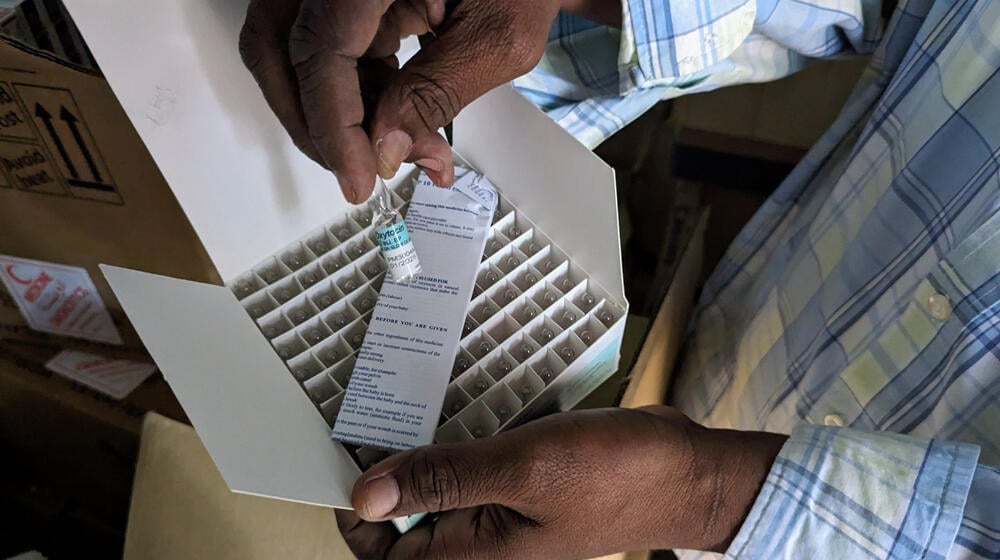In a significant step towards improving maternal healthcare in Sudan, the United Nations Population Fund (UNFPA) received a crucial shipment of 1.1 million units of Oxytocin and 163,900 packs of Misoprostol. The combined shipment of these life-saving medicines is a lifeline for over 536,000 women during pregnancy and childbirth who are expected to experience obstetric hemorrhage, which is the leading cause of maternal deaths in Sudan.
Both medicines are essential for the management of obstetric hemorrhage, with Oxytocin serving as both a preventive and treatment commodity for this critical health issue, offering hope to mothers and newborns alike.
“Misoprostol is a life-saving medicine that facilitates labor and childbirth. It has been out of stock for quite some time. Its availability is absolutely critical. Oxytocin is also a lifesaving medicine for pregnant women, especially during childbirth”. Reham A. Mohsen Galal Fadl, Manager of the National Medical Supplies Fund in Red Sea.
The shipment has been added to the medical supplies in Port Sudan and is set to address the significant shortages that have plagued health facilities across Sudan since April. Timely administration of Oxytocin plays a pivotal role in preventing post-partum hemorrhage and, in turn, reducing preventable maternal deaths.
“In one month we lost 6 women during labor in the hospital I work for because of the shortages of Oxytocin. It's really sad to see women die because of shortage of medicine. The happiness of a lot of families turned into an endless sorrow because of that.” Dr. Rawan. A doctor that preferred not to mention her identity.
“This shipment will help address significant shortages in most health facilities across Sudan.” Mr. Mohamed Lemine, UNFPA Representative in Sudan.
Sudan has faced a critical shortage of Oxytocin since the outbreak of conflict in April 2023, involving the Sudanese Armed Forces (SAF) and the Rapid Support Forces (RSF). This shortage has only added to the hazards of maternal mortality and morbidity in the country. UNFPA's efforts to provide an urgent stock of Oxytocin and work on replenishment shipments are essential in bridging this critical gap in maternal healthcare.
Before the conflict, Sudan had a substantial amount of Oxytocin stored at the National Medical Supplies Fund Warehouses in Khartoum, which would have been sufficient to cover the country's needs for seven months. Regrettably, these supplies have become inaccessible and their current storage conditions remain uncertain, possibly rendering them unsuitable for human use as this medicine must be stored under the strict temperature range of 4 to 8 degrees Celsius.
The arrival of this Oxytocin shipment procured with the UNFPA core funds stands as a beacon of hope amid the challenges Sudan faces. UNFPA is committed to safeguarding the health and well-being of Sudan's mothers and girls.


